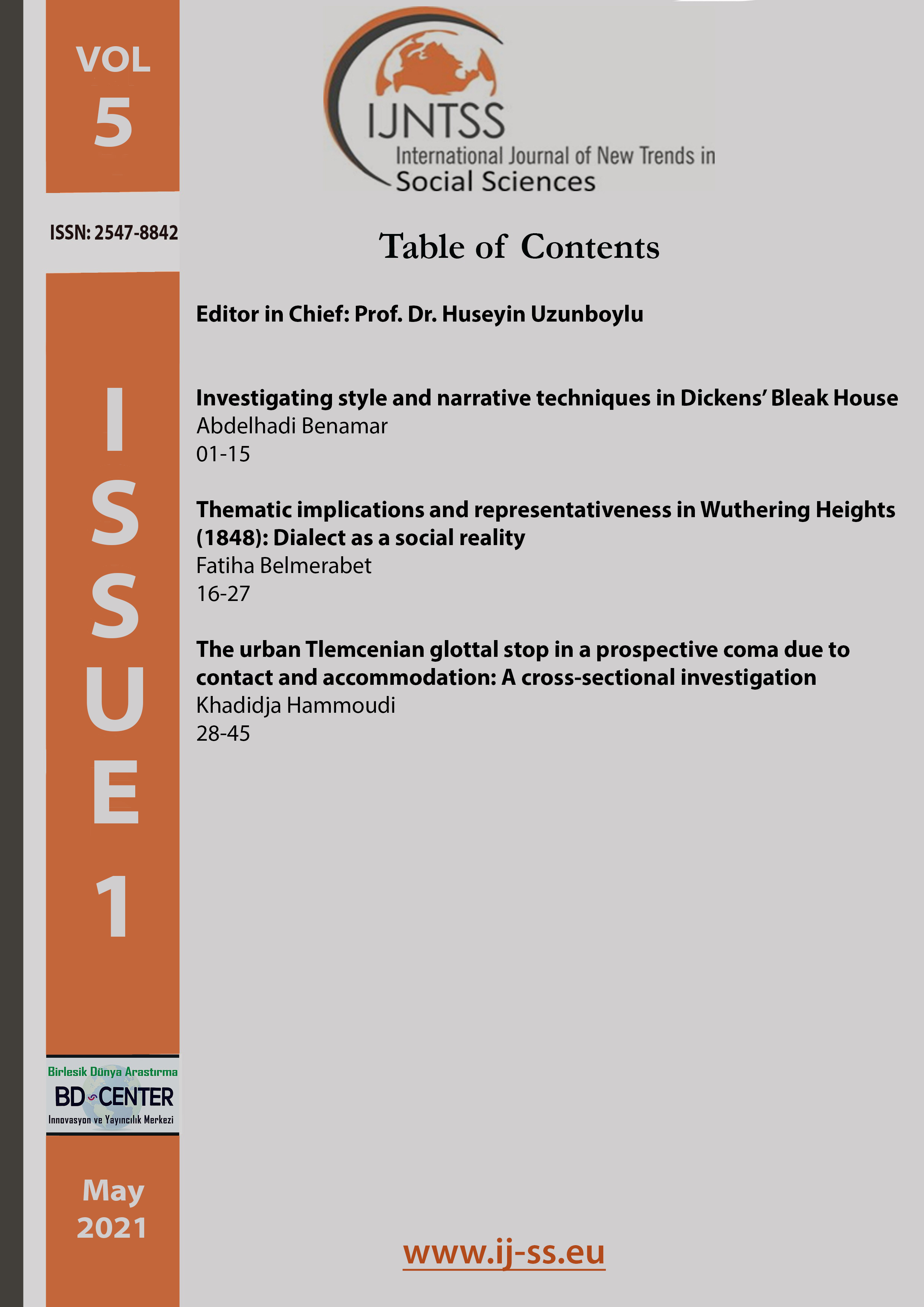The urban Tlemcenian glottal stop in a prospective coma due to contact and accommodation: A cross-sectional investigation
Main Article Content
Abstract
Although many researchers have attempted to include age as a variable in explaining linguistic variation, the delicate mechanisms via which variability in speech relates to age-grading aspect are still incomplete in especially lesser-known Arabic-speaking communities akin to Tlemcen, an urban city in Algeria. This paper aims at cross-sectionally investigating the sociolinguistic situation occurring in the Tlemcen speech community especially concerning the use of the glottal stop, an urban realisation of classical Arabic qaf. With the help of a survey interview, questionnaire and non-participant observation, data were collected from a convenient sample of 122 participants of different age cohorts and genders from Tlemcen. The results show that the dialect contact taking place in the community is moving towards aspects of koineisation, mainly levelling and simplification. Social and psychological features are said to explain the dialectal ruralisation guided by post-adolescent and young male native urban dialect speakers, while females of all ages, including old people, are strictly preservative.
Downloads
Article Details

This work is licensed under a Creative Commons Attribution 4.0 International License.
Authors who publish with this journal agree to the following terms:
- Authors retain copyright and grant the journal right of first publication with the work simultaneously licensed under a Creative Commons Attribution License that allows others to share the work with an acknowledgement of the work's authorship and initial publication in this journal.
- Authors are able to enter into separate, additional contractual arrangements for the non-exclusive distribution of the journal's published version of the work (e.g., post it to an institutional repository or publish it in a book), with an acknowledgement of its initial publication in this journal.
- Authors are permitted and encouraged to post their work online (e.g., in institutional repositories or on their website) prior to and during the submission process, as it can lead to productive exchanges, as well as earlier and greater citation of published work (See The Effect of Open Access).
